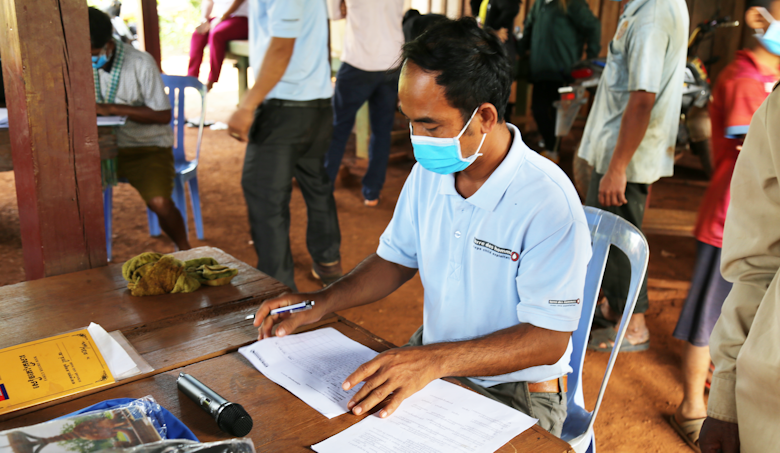Through Rough Roads, Sokhim Continues his Meaningful Work
Sokhim Chek is a Project Officer at Terre des Hommes Netherlands in Mondulkiri Province, Cambodia. Keen in making connections with people, he ensures that there is effective engagement with other organizations and local governments.
“I want to see a bright future where vulnerable Cambodian children are educated and be able to explain to their family and friends in their communities about the impact of early marriage”, he said.
Sokhim started working at TDH in 2018 for the implementation of the Early Child Marriage project. Due to his passion to work with communities such as the Bunong Indigenous people, he helped expand the project to 17 villages.
Early child marriage is caused by agricultural labour and wage work as children are forced into adulthood to maintain their family. This would lead to lack of time for education. As it became a rising issue in the province, Sokhim has supported different initiatives to combat it.
“We work with many different groups of people to raise awareness. We work directly with children and encourage them to create Child Clubs, this way they can advocate for themselves. We also work with local authorities such as village chiefs and teachers to inform parents about early marriage’s effects on a child’s future”.
Due to the nature of Sokhim’s work, travelling to rural areas is part of it. He said, “It is sometimes difficult to transport educational materials or organize village events as the best form of transportation are motorcycles. The road conditions are not very good and we often have to stay in the village overnight”
However, he has still seen many positives related to his work and stays motivated to continue his support.
“Communities, especially children are now starting to understand the impacts of early child marriage and the importance of continuing their education”, Sokhim said.
In response to the COVID-19 pandemic, Sokhim has continued his meaningful work.
“We continued organizing events to spread awareness about child marriage while following health guidelines such as social distancing, sanitizing our hands, and providing masks to people in the villages”.

